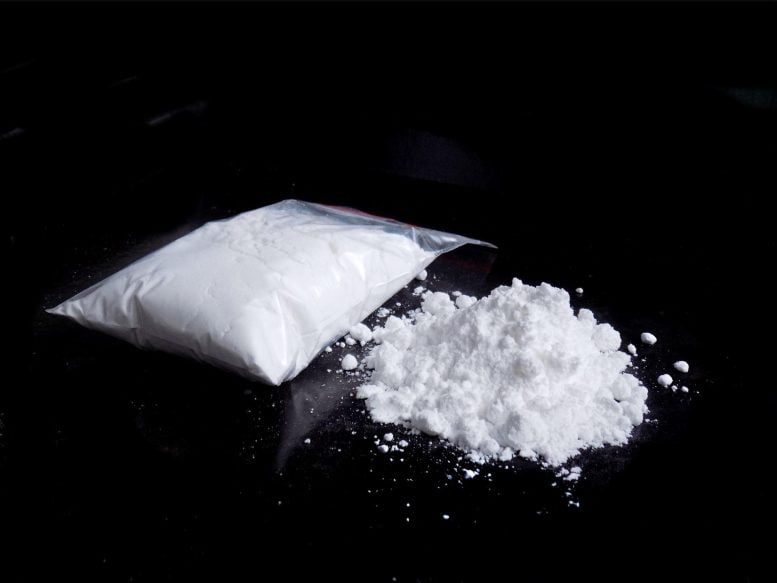
A new study reveals how cocaine interferes with the brain’s dopamine regulation by binding to the dopamine transporter, offering insights crucial for developing treatments for cocaine and other addictions.
You’ve likely heard of dopamine, often referred to as the “feel-good hormone.” Drugs like cocaine trigger a spike in dopamine levels in the brain. Under normal circumstances, a protein called the dopamine transporter (DAT) helps manage dopamine levels, ensuring that the brain doesn’t interpret every experience as pleasurable.
However, when affected by cocaine, the brain is unable to regulate dopamine levels. Previously, researchers did not know how cocaine affects the different transporters in the brain, but a new study from the University of Copenhagen has changed that.
“We have learned how cocaine binds to the dopamine transporter, which is a protein responsible for regulating dopamine levels in the brain. What we did was describe the structure of the dopamine transporter, which gave us molecular-level insight into how it is inhibited by cocaine,” says PhD Student Jeppe Cederholm Nielsen, who is one of the researchers responsible for the new study.
When the brain is unable to regulate dopamine levels, everything we do seems great, the researchers explain. Cocaine does not make the brain release more dopamine, but it prevents it from regulating and removing dopamine.
“When we experience something as pleasurable, it is because the dopamine that is released in the brain stimulates the reward center. The role of the dopamine transporter is to stop this process by removing dopamine,” says Professor Claus Løland from the Department of Neuroscience at the University of Copenhagen and adds:
“When cocaine blocks the dopamine transporter, dopamine will continue to stimulate the reward center – even though the experience itself is not particularly pleasurable. In other words, we become incapable of distinguishing between what is truly pleasurable and what is not, and then all types of input given by our senses will seem great. You could say that cocaine tricks the brain. It is a form of chemical brainwashing.”
The world’s most powerful microscope provides answers
To understand what cocaine does to the brain, the researchers studied the dopamine transporter, which is a very small protein – too small to be studied in a standard microscope.
“We have used the most powerful microscope in the world to study the structure of the atoms of the dopamine transporter. We have learned how cocaine binds and thus blocks this function, and this is important if we want to be able to stop cocaine from affecting the brain,” says Jeppe Cederholm Nielsen and adds:
“These proteins are so tiny that they are invisible under a microscope – even this extremely powerful microscope. But we used a couple of tricks to work around this and make them visible.”
Want to develop a treatment for substance abuse
There is currently no for cocaine abuse, but in the long run the researchers want to that can help people get rid of their addictions.
“Our dream is to find a medical treatment for cocaine abuse. While fewer and fewer people are addicted to drugs in general, an increasing number of people become addicted to cocaine. It is one of the most addictive substances out there, and it is becoming more and more affordable,” says Claus Løland.
The researchers hope their new knowledge of the function of the dopamine transporter will help them understand addiction in general.
“Perhaps we will be able to treat addiction to a number of things, not just cocaine. For instance, addiction to gambling or other substances, which is also caused by a release of dopamine into the brain,” says Claus Løland and adds: “If we were able to design a drug for addiction in general, we would be able to help a lot of people.”
Reference: “Structure of the human dopamine transporter in complex with cocaine” by Jeppe C. Nielsen, Kristine Salomon, Iris E. Kalenderoglou, Sarah Bargmeyer, Tillmann Pape, Azadeh Shahsavar and Claus J. Loland, 7 August 2024, Nature.
DOI: 10.1038/s41586-024-07804-3